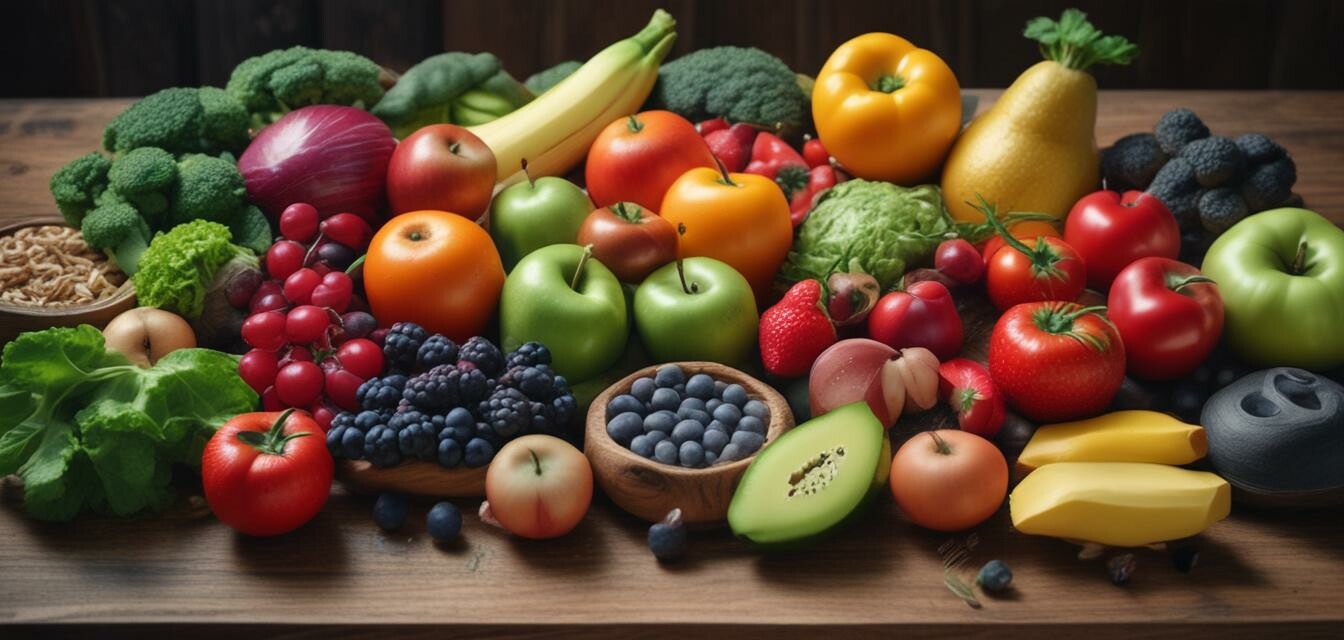
The Role of Diet in Healthy Hair Growth
Key Takeaways
- A balanced diet rich in vitamins and minerals supports healthy hair growth.
- Certain foods, such as leafy greens and nuts, are particularly beneficial for hair health.
- Tracking your dietary habits can help identify deficiencies that impact hair quality.
- Hydration is equally important for maintaining healthy hair.
- Combining various dietary strategies can maximize hair growth potential.
Your hair is a reflection of your overall health, and what you put into your body plays a significant role in its vitality. Essential nutrients in your diet can either promote strong, healthy strands or contribute to hair issues such as thinning and brittleness. This article explores the impact of nutrition on hair growth, highlighting specific foods that can enhance your hair's health and tips for tracking your dietary habits.
Understanding the connection between diet and hair health
Hair is composed mainly of a protein called keratin, which requires various nutrients to stay healthy and grow optimally. Diets deficient in these essential nutrients can lead to increased hair fall and dull-looking hair. Consuming a varied diet ensures you get a mix of vitamins, minerals, and proteins necessary for maintaining your hair's strength and shine.
Key Nutrients for Hair Growth
Here are some vital nutrients that directly impact hair health:
| Nutrient | Sources | Benefits |
|---|---|---|
| Protein | Lean meats, fish, eggs, beans | Supports hair structure and strength |
| Iron | Spinach, lentils, red meat | Promotes blood circulation, preventing hair loss |
| Vitamin A | Carrots, sweet potatoes, spinach | Helps produce sebum, keeping hair moisturized |
| Vitamin E | Nuts, seeds, avocados | Acts as an antioxidant, protecting hair from damage |
| Omega-3 Fatty Acids | Fish, flaxseeds, walnuts | Supports scalp health and hydration |
Top Foods for Healthy Hair
Incorporating specific foods into your meals can make a noticeable difference in your hair's appearance and health. Some of the best foods for promoting growth include:
- Leafy Greens: Spinach, kale, and Swiss chard are loaded with vitamins A and C, which are crucial for healthy hair.
- Fatty Fish: Salmon and mackerel provide protein and omega-3 fatty acids, essential for hair nourishment.
- Nuts and Seeds: Almonds and sunflower seeds contain zinc and vitamin E, which helps maintain scalp health.
- Eggs: Packed with protein and biotin, eggs are vital for keratin production.
- Berries: Blueberries and strawberries are rich in antioxidants that support hair follicles.
Why hydration matters
Staying hydrated is crucial for overall health, including maintaining the moisture balance of your hair. Dehydration can lead to dry, brittle hair that is prone to breakage. Drinking adequate water and incorporating hydrating foods, such as cucumbers and watermelon, can help sustain your hair's luster.
Getting the most out of your diet: Tips for tracking dietary habits
To ensure you're adopting a hair-friendly diet, consider the following strategies:
Tips for beginners
- Keep a Food Journal: Write down what you eat to identify any nutritional gaps.
- Set Goals: Decide on specific nutrients you want to focus on and create meal plans that incorporate them.
- Use Apps: Utilize dietary tracking apps to monitor your nutrition and hydration levels.
- Consult a Nutritionist: If you're unsure about the right dietary adjustments, a nutritionist can provide tailored advice.
- Stay Consistent: Make gradual changes to your diet rather than drastic ones for sustainable results.
The importance of a balanced approach
While the right diet can greatly enhance your hair's health, it's essential to combine it with good hair care practices. Using appropriate hair care products can further protect and nourish your strands.
Combining diet with good hair practices
Consider exploring products like deep conditioners and hair masks, which can provide extra nourishment. Furthermore, proper styling techniques (see Hair Care Tips) and tools can prevent damage and promote healthy growth rates.
Pros
- Improves overall hair strength and appearance
- Reduces hair thinning and loss
- Enhances scalp health and hydration
Cons
- Transitioning to a new diet may take time
- Requires consistency and patience
Conclusion
Healthy hair growth is multifaceted, involving various lifestyle factors, with diet playing a pivotal role. By focusing on nutrient-rich foods and tracking your dietary habits, you can improve your hair's health and unlock its full potential. Remember, a balanced approach incorporating nutrition and proper hair care is key to maintaining healthy locks. Make the commitment today to nourish your body, and your hair will thank you!

